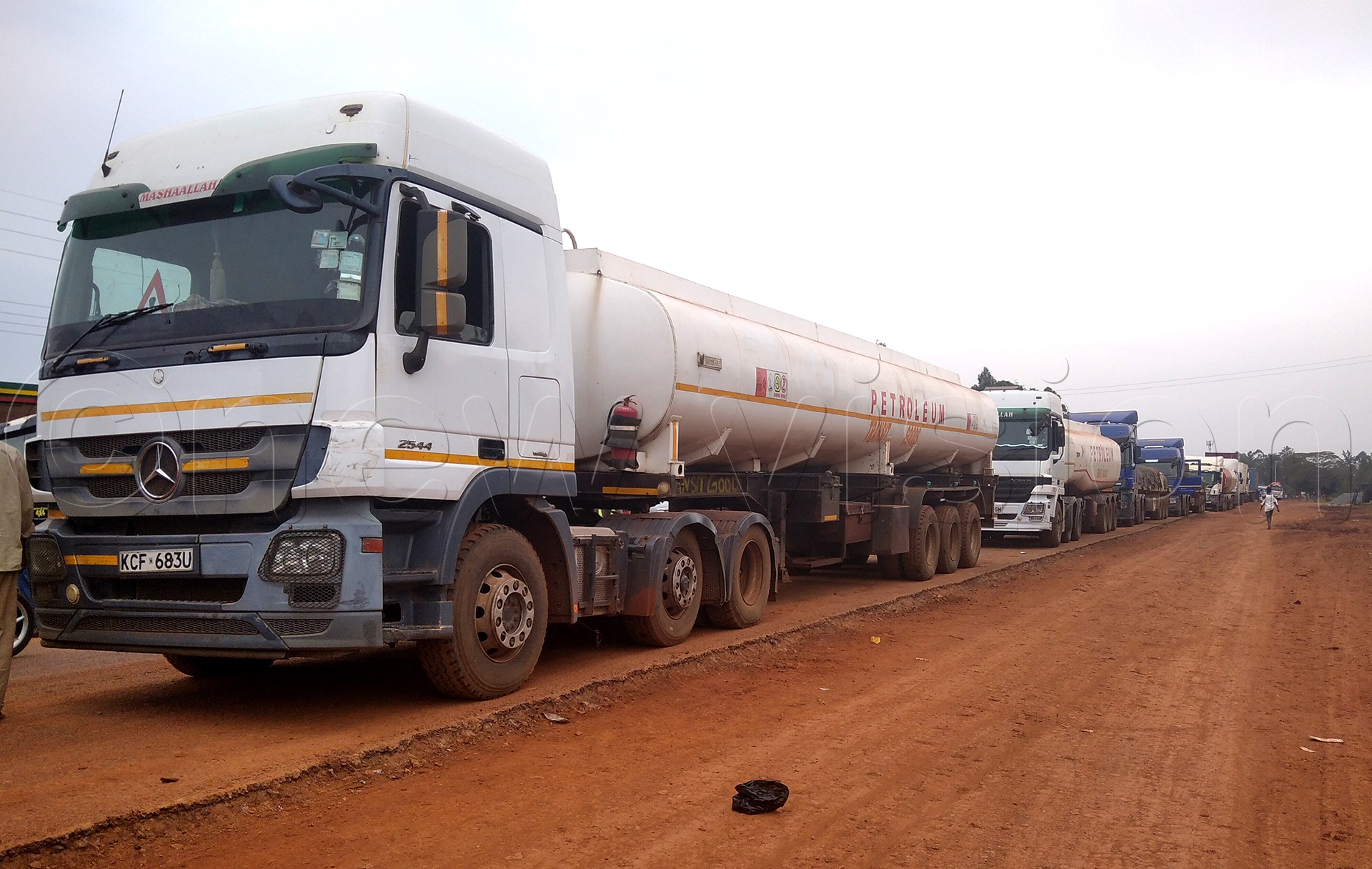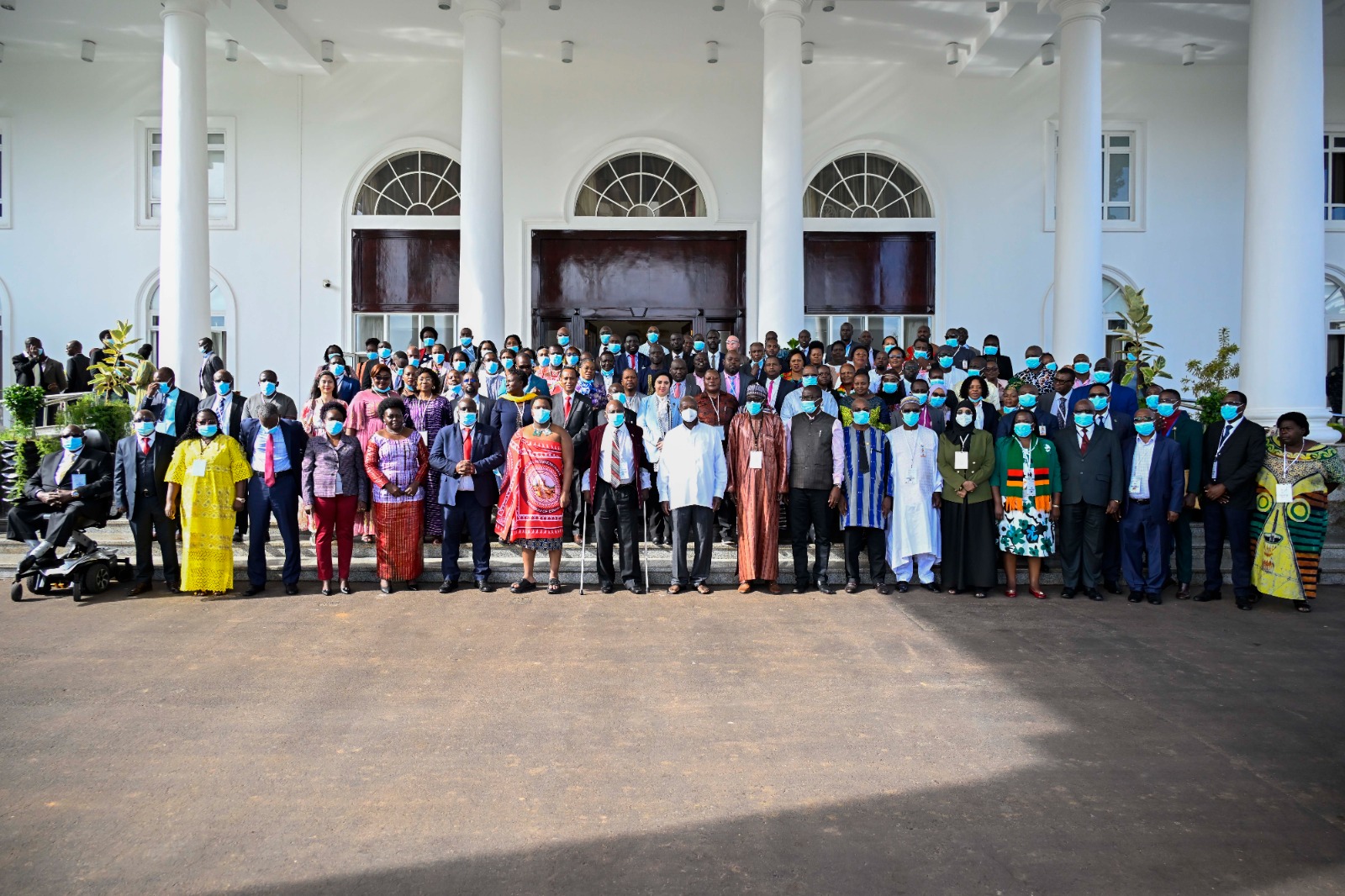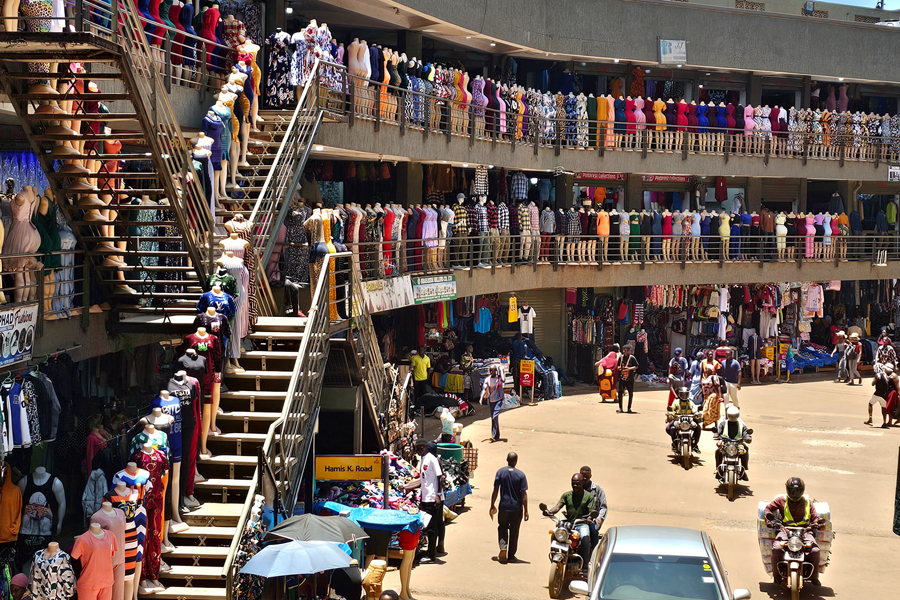Ministry of Agriculture registers growth, success towards increasing employment, household incomes
The Ministry of Agriculture, Animal Husbandry and Fisheries has underscored the importance of agriculture as one of the critical sectors towards the growth of Uganda’s economy that will greatly contribute to wealth and employment creation.
Highlighting its implementation status of the manifesto commitments 2021-2026, the Ministry reported a sector growth of 4.4% in financial year 2021/22 as compared to 4.3% in financial year 2020/21.
The ministry said it has made tremendous efforts in the sector that have led to increased employment, increased household incomes, food security and exports.
About 80% of Uganda’s land is arable but only 35% is being cultivated, according to the ministry. It noted that Uganda’s agricultural potential is among the best in Africa, with low temperature variability, fertile soils, and two rainy seasons over much of the country - leading to multiple crop harvests per year.
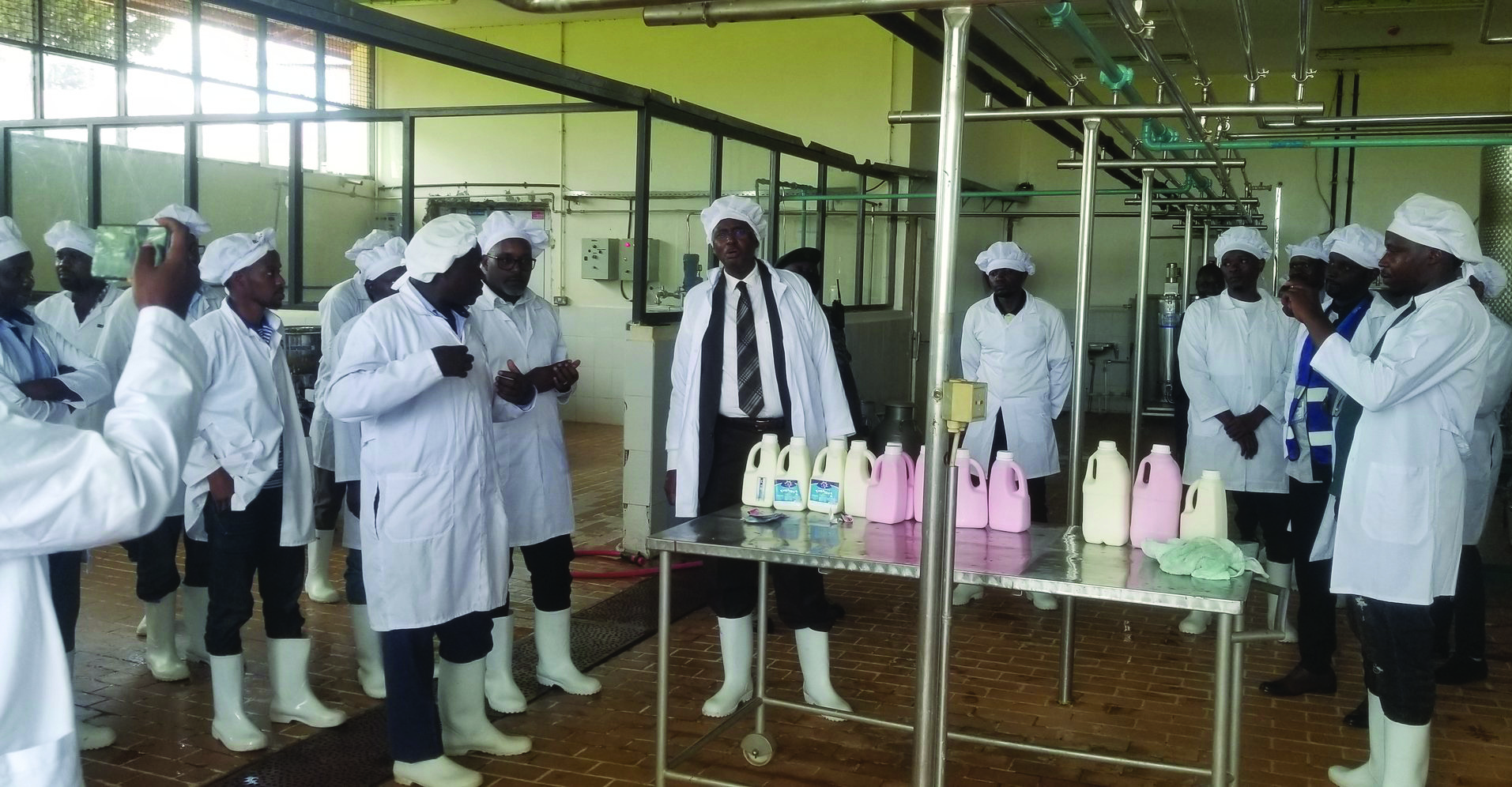
According to the UN’s Food and Agriculture Organization, Uganda’s fertile agricultural land has the potential to feed 200 million people.
Currently, the agriculture sector employs about 70% of Uganda’s working population, provides more than 33% of exports, contributes about 24.1% of the GDP, and provides food, feed and income security for most households in the country.
Agricultural production in Uganda operates at less than 40% of its attainable potential for key staple crops.
The sector focus is “A competitive, profitable and sustainable agricultural sector”. This, according to the ministry, will be achieved through transforming subsistence farming to commercial agriculture as envisaged in the National Development Plan III (NDPIII) and Parish Development Model (PDM).
Agricultural mechanisation
The Ministry said formulation of the new Agriculture Mechanization Policy which is meant to streamline farmers’ access to mechanization equipment and tractor hire services has been finalized.
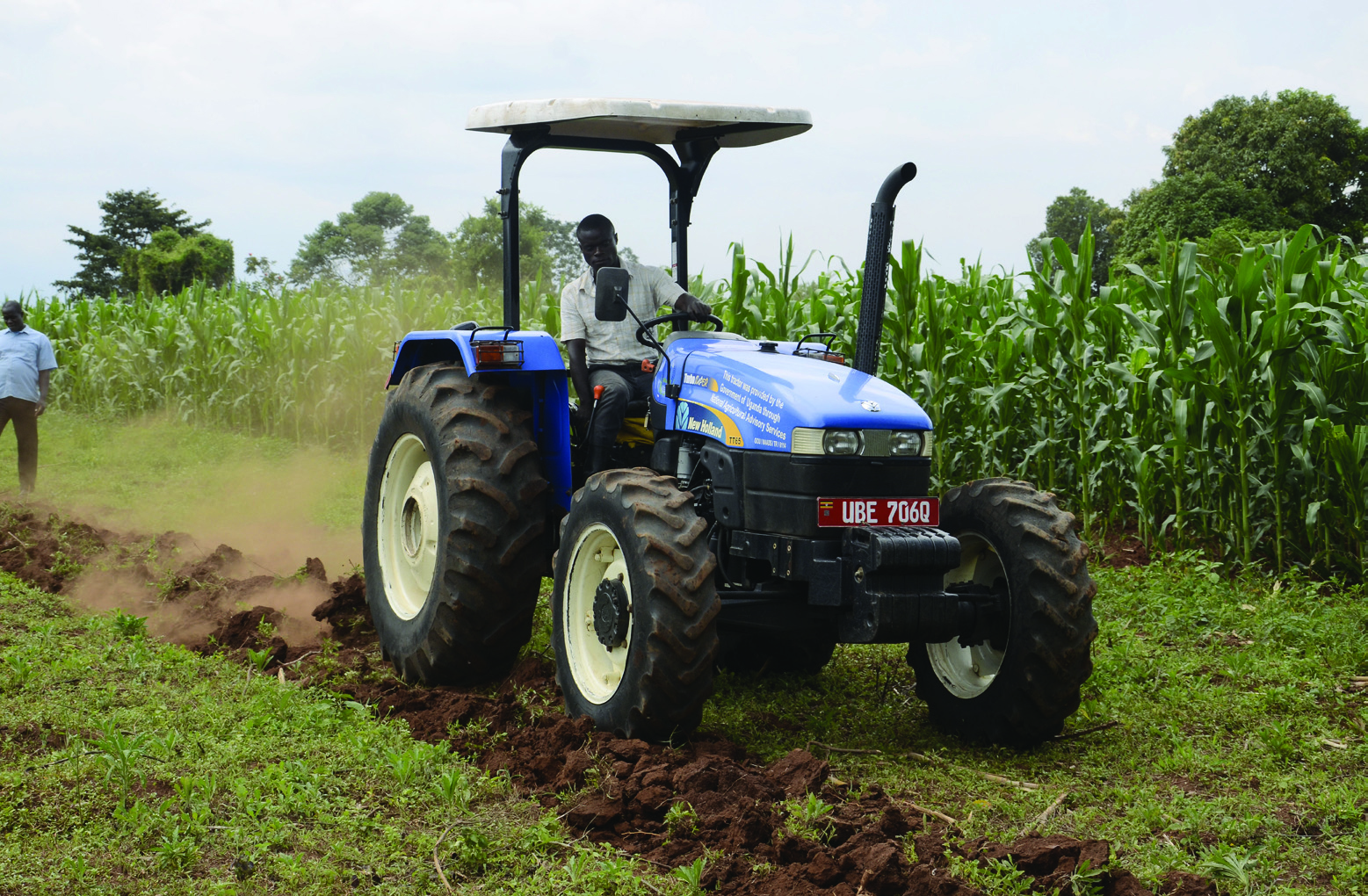
The new policy is also meant to streamline access to credit for mechanisation equipment and also guide private sector investments in agriculture mechanisation/ tractorisation.
The Ministry says it has procured and distributed 325 tractors and matching implements to 115 district local governments. It piloted provision of tractor hire services using 16 tractors and implements for hire at a subsidized rate.
“These tractors and implements are accessed at the subsidised hire rate of Shs 40,000 per acre for ploughing, harrowing and spraying, as compared with Shs 120,000 per acre charged by the private equipment owners. Equally, access to heavy earth moving equipment is subsidized,” the ministry noted.
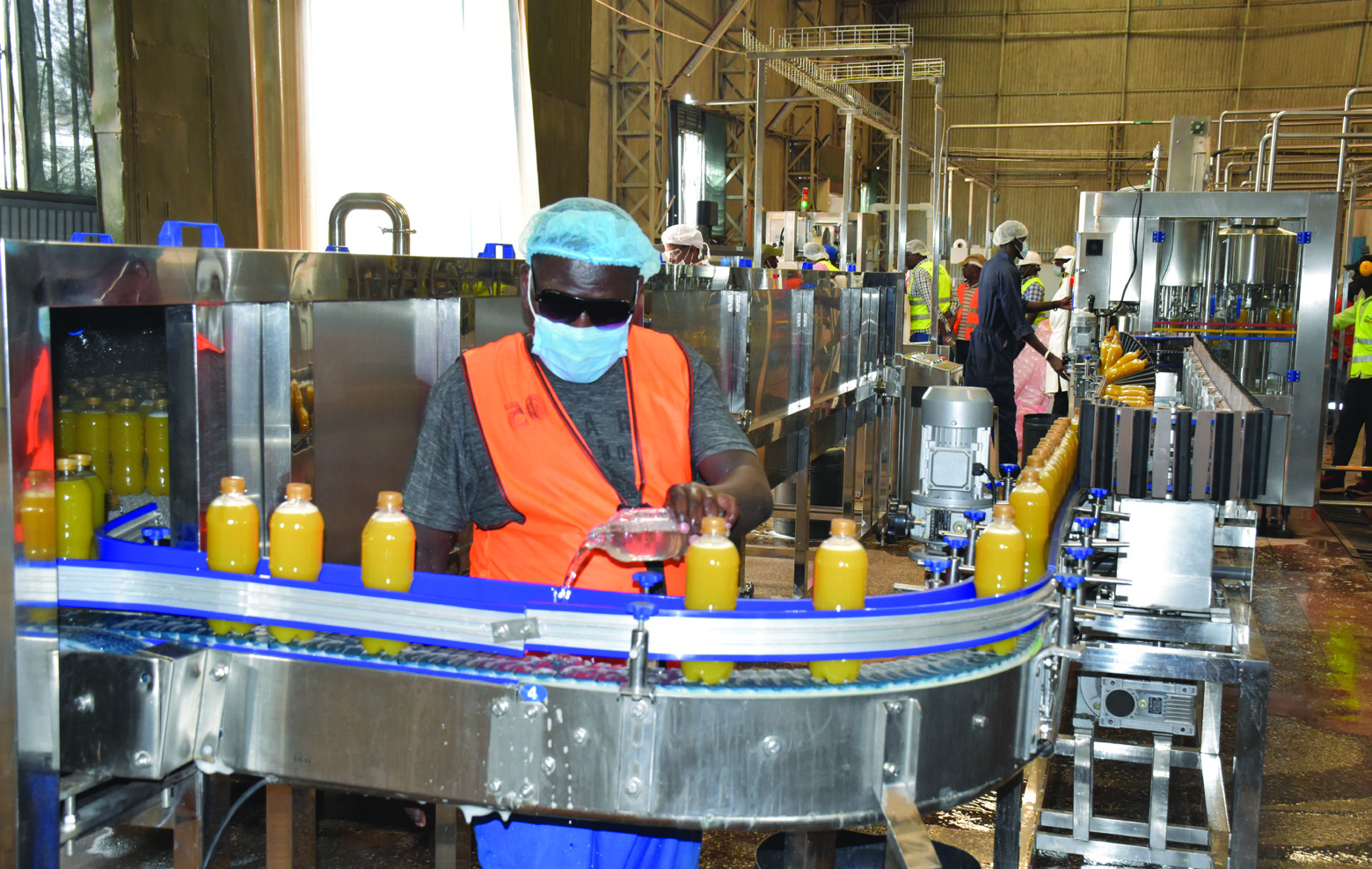
The Ministry said its rate is Shs 480,000 per acre compared to Shs 1,200,000 per acre charged by the private sector.
According to the ministry, this intervention has greatly supported rice, coffee, maize, cotton, sunflower, pasture, beans and cassava growing households. The heavy equipment units have also been able to support the development and construction of the water storage facilities (valley tanks, dams, channels, fish ponds) and currently there are 1550 facilities constructed and desilted country wide as well as opening farm access roads.
The Ministry said it has started with the rehabilitation and equipping of the Namalere National Referral Agricultural Mechanization Center to serve as center of excellence for skilling, training, upgrading and accreditation of the equipment and machinery operators, mechanics and technicians.
The centre will undertake; testing, accreditation, evaluation and certification of the new equipment and machinery units in the country to avoid high costing, weak and obsolete equipment importation and ensuring the quality and correct steel grades to curb use of inferior metals that expose our people to cancer and degradation of the environment.
To increase access and availability of the agricultural mechanisation and farm machinery services to all the farming communities, the Ministry said it is constructing and equipping the five Zonal agricultural mechanization centers. These include; Mbale, Kiryandongo, Bushenyi, Agwata and Buwama out of the 18 planned centres country wide.
The ministry noted that providing incentives to private sector players investing in agricultural equipment for hire is not yet implemented; however, the site for the tractor assembly plant was identified in Namalere. This is a partnership with the private sector under the Parish Development Model.
Livestock sector
The Ministry said it intended to establish four mini-dairy processing facilities across the four regions of Uganda to process dairy products such as pasteurized milk, yoghurt, ice cream and other related products.
However, due to resource constraint and some impediments in implementing the East African trade policy relations ,it failed the full realisation of the government efforts in dairy farming marketing strategy.
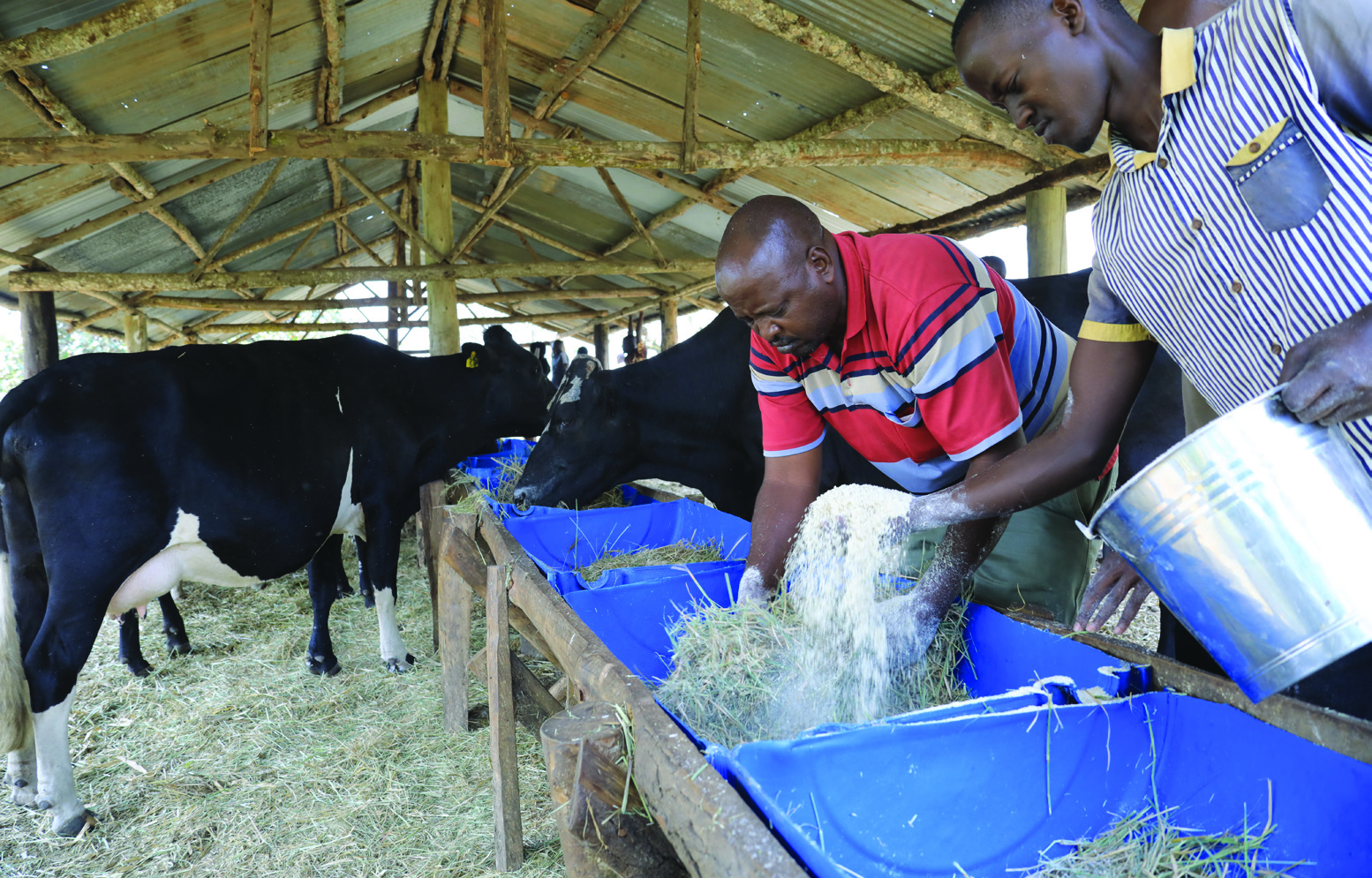
The ministry said NAADS procured two mini dairy processing plants of 250L/batch/hour each for beneficiaries in Isingiro and Sembabule. Contracts signed in June 2022 and delivery to be completed during financial year 2022/23.
“The Ministry continued support to dairy farmers with inputs such as in - calf heifers, free pasture seed and pasture; rangeland improvement in the national milk sheds, artificial insemination, drugs, milk collection and bulk cooling facilities. 367 beneficiaries, including youth groups & women leaders in 33 district local governments were reached,” the ministry noted.
It stated that NAADs has completed civil works for construction of slabs and ancillary structures for 12 containerized milk coolers for Kamwenge, Kyegegwa, Kyenjojo and Kabarole districts.
Distribution of livestock materials (1,782 heifers, 8,186 pigs, poultry birds - 29,950 broilers, 6,000 layers plus 59,950 broilers and fish - 3,960,400 fingerlings)
NAADs procured and delivered 367 in calf heifers for 367 beneficiaries targeting youth groups & women leaders in 33 district local governments.
NAADs procured and delivered 5,365 improved pigs to 1,708 beneficiaries in 27 district local governments.NAADS procured and delivered 418, 685 Tilapia fish fingerlings to 13 districts local government, 206,924 Catfish fingerlings to 6 districts local government as well as 18,987 kgs of fish feeds,”.
The ministry said that NAADs also procured and delivered 30,000 layer chicks and associated poultry feeds for instance 72,000Kgs of chick and duck mash, 60,000kgs of growers’ mash to 60 beneficiaries in 6 district local government.
These include Wakiso, Mbarara, Mitooma, Rakai, Mpigi, Budaka under strategic interventions.
“NAADS procured and delivered 49,600-day old broiler chicks and associated poultry feeds i.e., 49,600 kg of broiler starter pellets, 57,629 kg of broiler growers’ pellets and 57,118 kg of broiler finisher pellets to beneficiaries under strategic interventions,” said the ministry.
In the dairy subsector, the ministry said it procured and distributed 485 milk handling equipment to different dairy stakeholders across the country. The high-grade milk handling equipment came in three sizes (50L, 25L and 10L) to facilitate clean milk post-harvest storage and transportation.
A total of 60 dairy cooperatives and farmer groups benefited from the milk handling equipment country wide.
Dairy Development Association (DDA) licensed and registered 1,564 dairy businesses countrywide. These included milk sales outlets/premises, dairy equipment dealers, exporters and importers, milk processors, transporters and Milk Collection Centres.
The authority is in the process to accredit the National Dairy Laboratory that will enable the country to acquire national and international acceptance of test results and therefore facilitate both domestic and foreign trade, according to the ministry of Agriculture.
The minister also noted that the efforts in the coffee sub sector have resulted into an increase in coffee production from 8.06 million 60kg bags in financial year 2020/21 to 8.45 million 60kg bags in financial year 2021/22.
Agro-industries
The ministry said feasibility studies are being undertaken for establishing new and expand existing agro-industries for processing of cassava, fruits, cocoa, coffee, sugarcane, dairy, maize and rice.
Accelerating disease control measures in livestock sector to meet international standards.
The ministry said, a total of 4,650,000 animal disease vaccines were acquired and distributed to farmers. These included 2.65 million doses of Food and Mouth Disease (FMD) and 1,000,000 doses of LSD Vaccine, 2,000,000 doses of PPR.
Distribution of strategic planting materials to scale up production for processing in selected clusters
According to the ministry, NAADs procured and delivered 7,362,412 of tea seedlings for Bushenyi, Rubanda and Sheema districts to establish 1,472 acres for 1,472 households in financial year 2021/2022.
It procured and delivered 1,184,858 citrus seedlings to 32 districts local governments to establish 9,677 acres for 9,677 households. It also procured and delivered 1,244,618 mango seedlings to 57 districts local governments to establish 15,620 acres for 15,620 households.
5,996,666 pineapple suckers were also procured and delivered to 17 districts local governments to establish 599 acres for 599 households.
A total of 5,330,000 pineapple suckers were procured during financial year 2020-21 were distributed to farmers in 13 districts local governments during season 2021 B.
147,842 seedlings of cashew nuts delivered and distributed in 15 districts local governments to establish 2,112 acres for 2,112 households. NAADs also delivered and distributed 167,000 apple seedlings to9 districts local governments to establish 506 acres for 506 households including vulnerable groups.
Reduce the proportion of households in subsistence agriculture
The percentage of households in subsistence economy has reduced from the 68.9% to 39%, 56% are in purely subsistence farming, according to the ministry.
The ministry said it has developed the agriculture value chain development strategy with a component to support large scale farmers to boost food and animal feed security.
These interventions according to the ministry are aimed at increasing production and productivity of the various priority and strategic crop commodities for improved household food and income security, as well as export earnings in the case of the strategic crop commodities.
Large pieces of land
For the households with large pieces of land, the ministry said the government through NAADS has procured and distributed crop commodities to households with high pieces of land.
For instance focused on the procurement in various district local governments involving the major perennial crops, notably tea, fruits (citrus, mangoes, pineapples, apples, passion fruits) and cashew nuts for household incomes and export earnings.
Going forward, the ministry said it has presented to cabinet the interventions to support large scale farmers to address issues of food and feed security.
It however noted that the government has shifted its policy direction on distribution of free seedlings to farmers.



